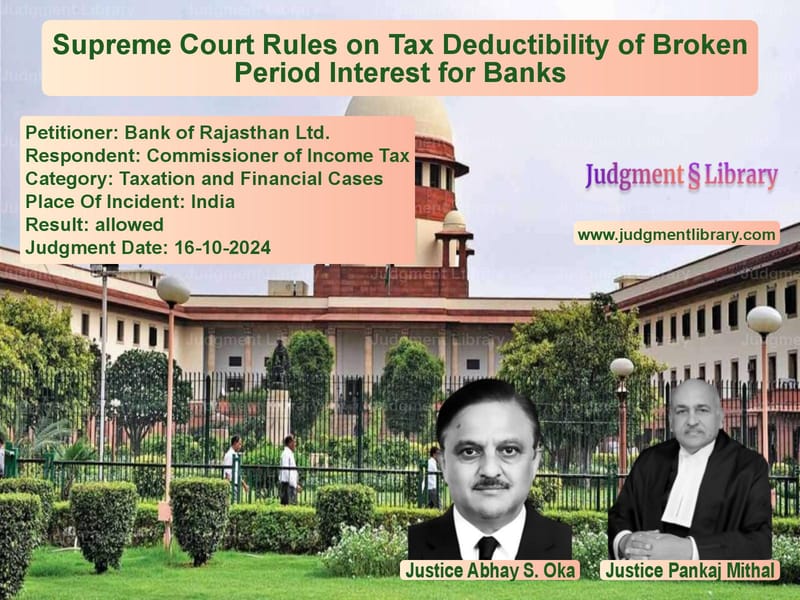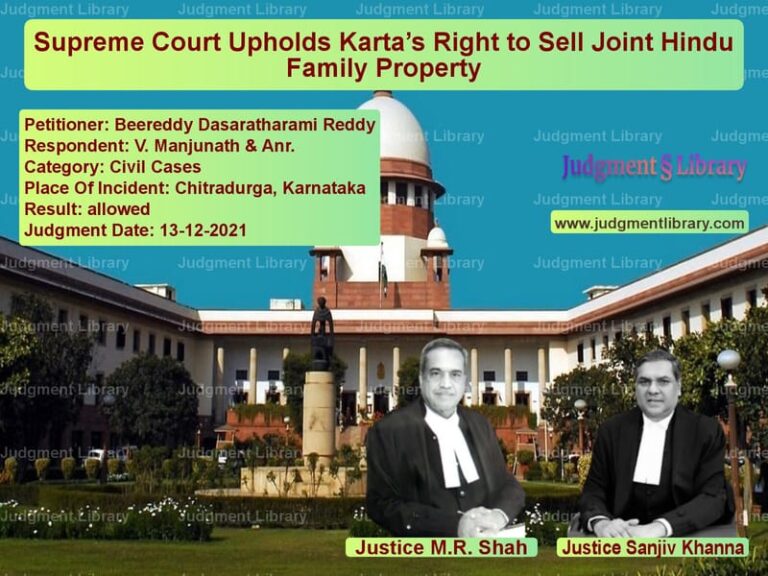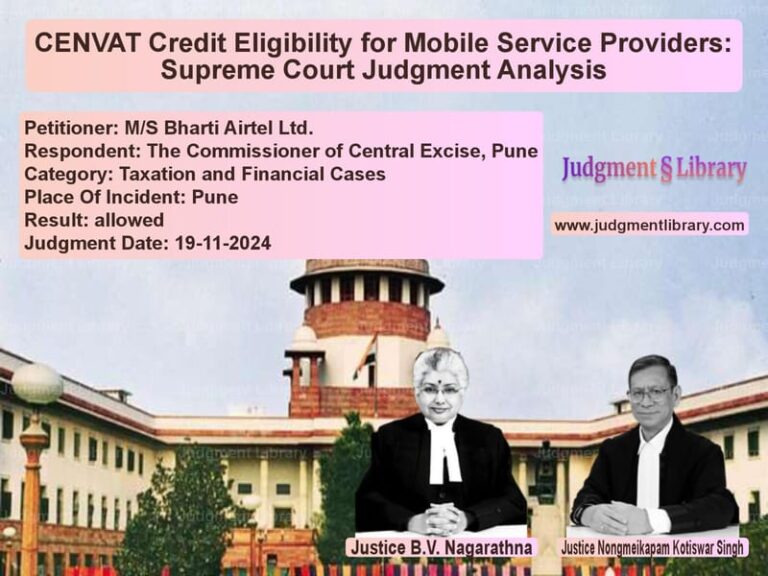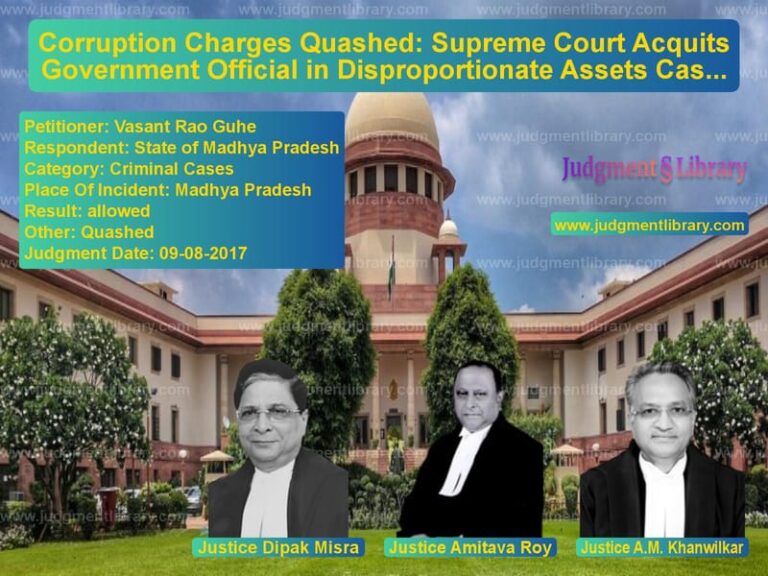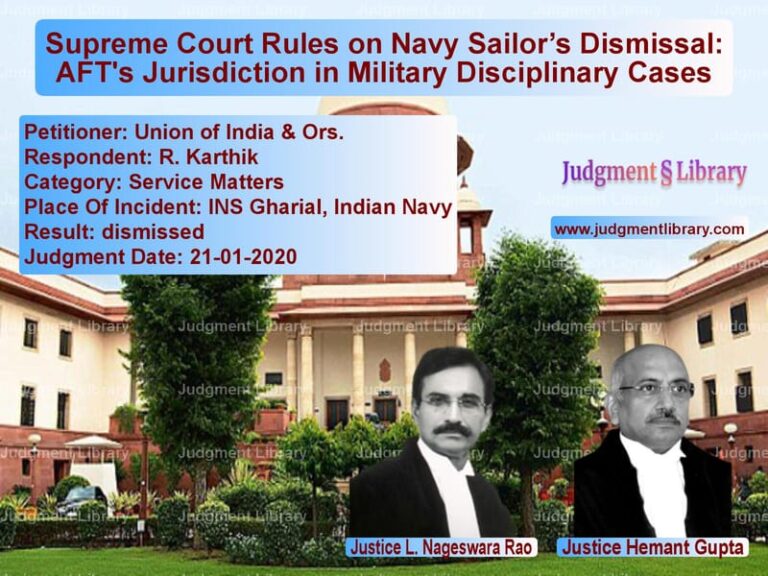Supreme Court Rules on Tax Deductibility of Broken Period Interest for Banks
The Supreme Court of India has provided a crucial judgment in the case of Bank of Rajasthan Ltd. v. Commissioner of Income Tax, addressing a long-standing dispute concerning the tax treatment of broken period interest on government securities. This case involved multiple appeals from banks and the Income Tax Department regarding whether broken period interest should be considered a revenue expense or a capital expense. The Court’s decision significantly impacts how banks account for their investments in government securities and their tax liabilities.
The central question was whether banks should be allowed to deduct the interest paid on securities acquired between two interest payment dates as a revenue expense under the Income Tax Act, 1961. The ruling clarifies the tax treatment of government securities categorized under Held to Maturity (HTM), Available for Sale (AFS), and Held for Trading (HFT).
Background of the Case
Under the Banking Regulation Act, 1949, and guidelines issued by the Reserve Bank of India (RBI), scheduled banks in India must maintain a Statutory Liquidity Ratio (SLR). This requirement mandates banks to invest in government securities, ensuring financial stability. The RBI classifies these securities into three categories:
Read also: https://judgmentlibrary.com/income-tax-appeal-supreme-court-dismisses-case-on-barred-revised-return/
- Held to Maturity (HTM): Securities held until maturity, generally considered long-term investments.
- Available for Sale (AFS): Securities that can be sold before maturity but are primarily held for liquidity management.
- Held for Trading (HFT): Securities actively traded in the market for profit.
When a bank purchases a security between two coupon dates (interest payment dates), it pays an additional amount to the seller, representing interest accrued up to the purchase date. This amount is referred to as broken period interest. The tax dispute centered around whether this amount should be deducted as an expense in the bank’s profit and loss account or capitalized as part of the cost of acquiring the security.
Petitioner’s Arguments
The banks contended that broken period interest should be treated as a revenue expenditure because:
- Government securities are stock-in-trade for banks, not capital investments.
- Income from these securities is taxed under “Profits and Gains of Business or Profession,” supporting the deduction of broken period interest.
- The RBI guidelines require banks to treat broken period interest as an expense in their profit and loss accounts.
- Precedents such as American Express International Banking Corporation v. CIT and CITI Bank NA v. Commissioner of Income Tax have upheld the deduction of broken period interest.
- Banks follow a consistent accounting practice, which has been previously accepted by the Income Tax Department.
Respondent’s Arguments
The Income Tax Department opposed the deduction, arguing:
- Broken period interest should be capitalized as part of the cost of acquiring government securities.
- HTM securities are investments, not stock-in-trade, and thus, broken period interest is a capital expenditure.
- The Supreme Court ruling in Vijaya Bank Ltd. v. Additional CIT stated that broken period interest cannot be deducted as a business expense.
- Allowing banks to deduct broken period interest leads to revenue loss for the government.
Supreme Court’s Analysis and Judgment
The Supreme Court extensively reviewed past precedents and statutory provisions to reach its decision. The Court noted:
- Banks hold securities as part of their regular business operations, making them stock-in-trade rather than capital investments.
- The income from these securities is taxed under business income, which aligns with treating broken period interest as a deductible expense.
- The Vijaya Bank Ltd. ruling was based on an earlier legal framework that no longer applies after the repeal of Sections 18-21 of the Income Tax Act.
- For AFS and HFT securities, broken period interest is deductible as revenue expenditure.
- For HTM securities, the deduction depends on whether they are truly held as investments or as stock-in-trade.
- If HTM securities are held till maturity and classified as investments, broken period interest should be capitalized.
Key Directives from the Judgment
The Supreme Court issued the following directives:
- Banks may deduct broken period interest as a business expense for AFS and HFT securities.
- Banks must demonstrate that HTM securities are stock-in-trade to claim a deduction for broken period interest.
- Income tax authorities must assess whether securities are truly held for trading or investment purposes.
- Banks should maintain clear records distinguishing their securities’ classification for tax purposes.
Implications of the Ruling
The Supreme Court’s ruling has far-reaching implications for banks and the financial sector. The decision:
- Clarifies the tax treatment of government securities held by banks.
- Ensures consistency in accounting practices for financial institutions.
- Prevents unnecessary litigation by providing a clear legal framework.
- Aligns tax laws with commercial realities in the banking industry.
Conclusion
The judgment in Bank of Rajasthan Ltd. v. Commissioner of Income Tax brings much-needed clarity to the taxation of broken period interest in India. The Court’s ruling confirms that banks can deduct broken period interest as a revenue expense for AFS and HFT securities while requiring a careful classification for HTM securities. This decision will have a significant impact on how banks manage their tax liabilities and maintain compliance with regulatory requirements.
The ruling reinforces the principle that taxation should align with the economic realities of business operations. By upholding the deductibility of broken period interest for securities classified as stock-in-trade, the Supreme Court has provided banks with a definitive guideline for their financial reporting and tax planning.
Petitioner Name: Bank of Rajasthan Ltd..Respondent Name: Commissioner of Income Tax.Judgment By: Justice Abhay S. Oka, Justice Pankaj Mithal.Place Of Incident: India.Judgment Date: 16-10-2024.
Don’t miss out on the full details! Download the complete judgment in PDF format below and gain valuable insights instantly!
Download Judgment: bank-of-rajasthan-lt-vs-commissioner-of-inco-supreme-court-of-india-judgment-dated-16-10-2024.pdf
Directly Download Judgment: Directly download this Judgment
See all petitions in Income Tax Disputes
See all petitions in Banking Regulations
See all petitions in Tax Evasion Cases
See all petitions in Tax Refund Disputes
See all petitions in GST Law
See all petitions in Judgment by Abhay S. Oka
See all petitions in Judgment by Pankaj Mithal
See all petitions in allowed
See all petitions in supreme court of India judgments October 2024
See all petitions in 2024 judgments
See all posts in Taxation and Financial Cases Category
See all allowed petitions in Taxation and Financial Cases Category
See all Dismissed petitions in Taxation and Financial Cases Category
See all partially allowed petitions in Taxation and Financial Cases Category

